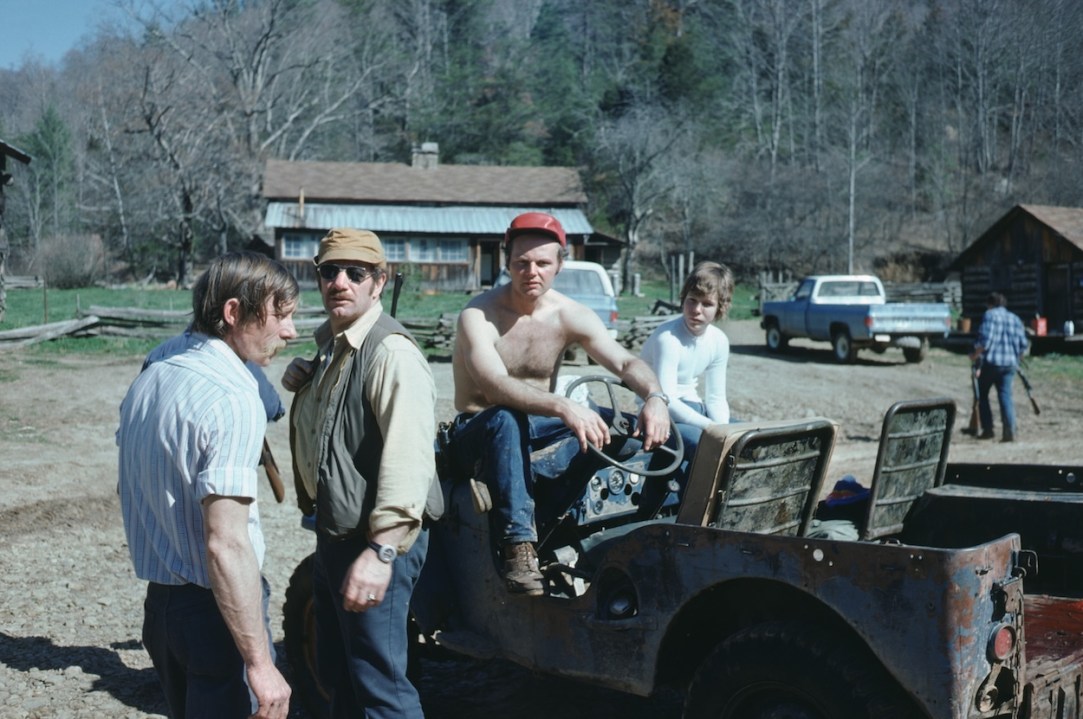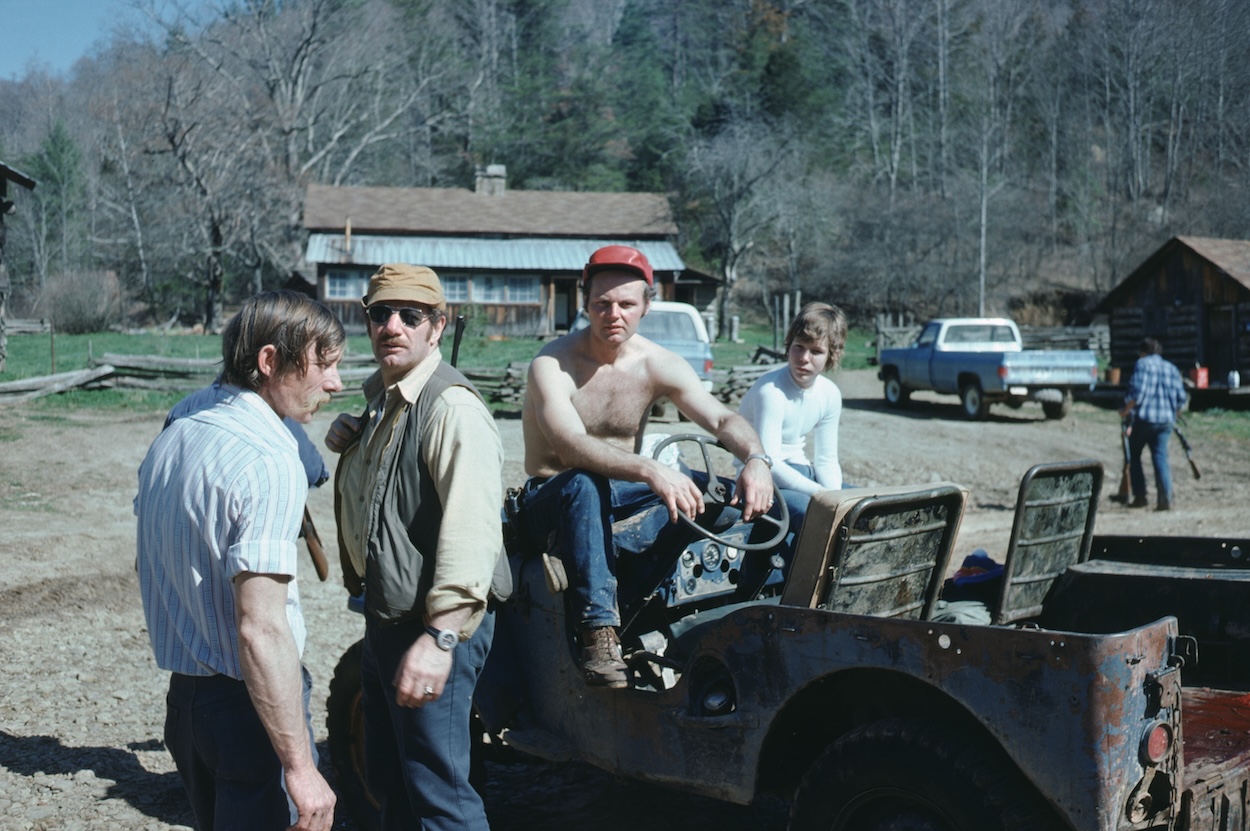Have you ever heard of Duddies’ Branch? Chances are, you haven’t – because, firstly, its brief moment of fame came many years ago and, secondly, Duddies’ Branch does not actually exist. To explain: ‘Duddies’ Branch’ is the politely fake name given by an American anthropologist, Rena Gazaway, to a real and isolated settlement in a hollow of the Appalachian mountains (almost certainly in Kentucky). Herself born into ‘hillbilly’ culture, Gazaway spent many months of the 1960s living with the people of Duddies’ Branch. She later published her findings in a shocking 1969 book called The Longest Mile.
What Gazaway encountered in that lost wooded ‘holler’ reads like dystopian fiction, even at a distance of decades. Most of the residents were functionally illiterate. The few children who did go to school beyond the hollow were so mercilessly teased in class that they abandoned education. Sanitation was basically unknown: lacking toilets, the locals defecated in the open, directly into the water sources. These same polluted streams were used to briefly wash a few tin dishes; residents ate with their fingers.
Everyone was filthy. Illness was rife. Children were malnourished – sometimes half the size of healthy kids. Gazaway reports that the hair of the children ‘literally throbbed with lice’ even as the foul air in the shacks smelt pervasively of ‘dried urine, stale cooking, unwashed bodies, dirty clothing’. Offspring and adults shared the same rancid beds, and girls were ‘introduced’ to sex as young as six. The resultant babies – often born of outright incest – had no idea of their true fathers. When Gazaway asked one boy about the identity of his father, the boy shrugged and said, ‘haint worth knowing’.
It goes on. There was little interaction between households, and even family members barely conversed. Indeed, Duddies’ Branchers spoke so infrequently that Gazaway initially thought many of them were mute. On the other hand, householders would occasionally shoot their neighbours’ dogs – solely because it amused them.
Children could not play simple games, nor sing a basic tune, nor spell their own names, nor, when instructed, ‘raise their right hand’. Residents had no real concept of clock time or calendar years, and everything outside the hollow was an occluded mystery. One resident believed America maybe had a ‘king’ named Kennedy. There was, however, one thing the Duddies’ Branchers were very good at: maximising government benefits, or taking ‘the draw’. They did this of necessity. The isolated hollow was an infertile place – desolated by earlier coal mining – and the only employment was in new mines far away, which most shunned as it meant exile from the community. As a result, the locals learned to exploit the welfare system with vivid efficiency.
Lying on ‘the forms’ was expected – via one of the few literate locals. Children were double-counted, disabilities were faked, names were invented, girls were coached into pregnancy to push up claims. And if anyone found a new way to fiddle the benefits, the trick was quickly shared with everyone else. In her book, Gazaway notes that the Kentucky welfare bill soared during the 1960s.
At this point, if you’re anything like me – given to grim but perhaps compelling analogies – you’re starting to see an unhappy likeness. It may seem outrageous, but the people of Duddies’ Branch sound, in a few crucial respects, uncomfortably like the British in Britain in 2025. The obvious echo is that dependency on benefits. As we are all too aware, the benefits bill in the UK has exploded in the last few years – just as it did in Kentucky. According to the Office for Budget Responsibility, spending on disability benefits alone is forecast to soar past £100 billion a year by 2028 (for contrast, we spend £54 billion on defence).
Entire British communities – generally the more urban – depend on the ‘draw’, and ‘personal independence payments’. Like the Branchers, some have learned to game the system, sharing the tricks of the dole-claiming trade on YouTube. Meanwhile, our clueless, enfeebled MPs seem pathologically unable to restrict access. If the only parallel were welfare, perhaps we could console ourselves that a future government – firmer and smarter – might set things to rights while preserving a safety net for those who really need it. The trouble is, the more I read about Duddies’ Branch, the more I detect faint but disturbing echoes from the hickory woods of Appalachia.
OK, we are not shooting each other’s terriers for laughs – and yet, and yet. Witness the degradation of the public realm throughout the UK, from the graffiti in our shuttered streets to the rubbish everywhere. And as for the fly-tippers who casually dump their trash in the countryside – is that really so different from the Kentucky hillbillies crapping in the creeks? It feels like the same imbecilic and poisonous attitude: the fouling of our own nest, because why bother, and who cares?
Civilisation isn’t inherited: it is remembered, renewed, upheld
You might even see further parallels. As the Duddies’ Branchers retreated into mute inertia, so we cower into smartphoned isolation – dulled and atomised. As the Branchers shunned education, so our IQs drop, children cannot read books, and students cheat with ChatGPT, absorbing nothing. Is there anything we can learn from this? Certainly, when it comes to welfare, Rena Gazaway had a definite solution. Perhaps because she was herself ‘hillbilly poor’, she took a flinty-eyed view of the benefits that kept the Branchers ‘indigent’. The state, she felt, was too generous.
But maybe the biggest lesson arrives when you look at the origin of Duddies’ Branch. These people were not an oppressed minority with a terrible history – not freed slaves nor land-robbed Native Americans. They were Protestant Scots-Irish – ‘God’s Frontiersmen’. In early American history, these famously rugged, resourceful, self-reliant British folk were generally seen as the shining spearpoint of European settlement in the USA. The Scots-Irish, for instance, provided early presidents like Andrew Jackson and James K. Polk, and iconic fighters like Sam Houston and Davy Crockett. Ulysses S. Grant was Scots-Irish in ancestry; so was Andrew Pickens, a hero of the Revolutionary War.
Nevertheless, given the right and peculiar circumstances – isolation, apathy, loss of cultural confidence, along with a foolish tolerance of their own dependency – these same incredible people were capable of descending into howling depths of depraved squalor, even as wider America sent men to the moon. It is, if nothing else, a glimpse of a scary and possible future, if things go truly awry. It is also a warning that civilisation isn’t inherited: it is remembered, renewed, upheld. And when that stops, even God’s Frontiersmen can forget who they are.








Comments